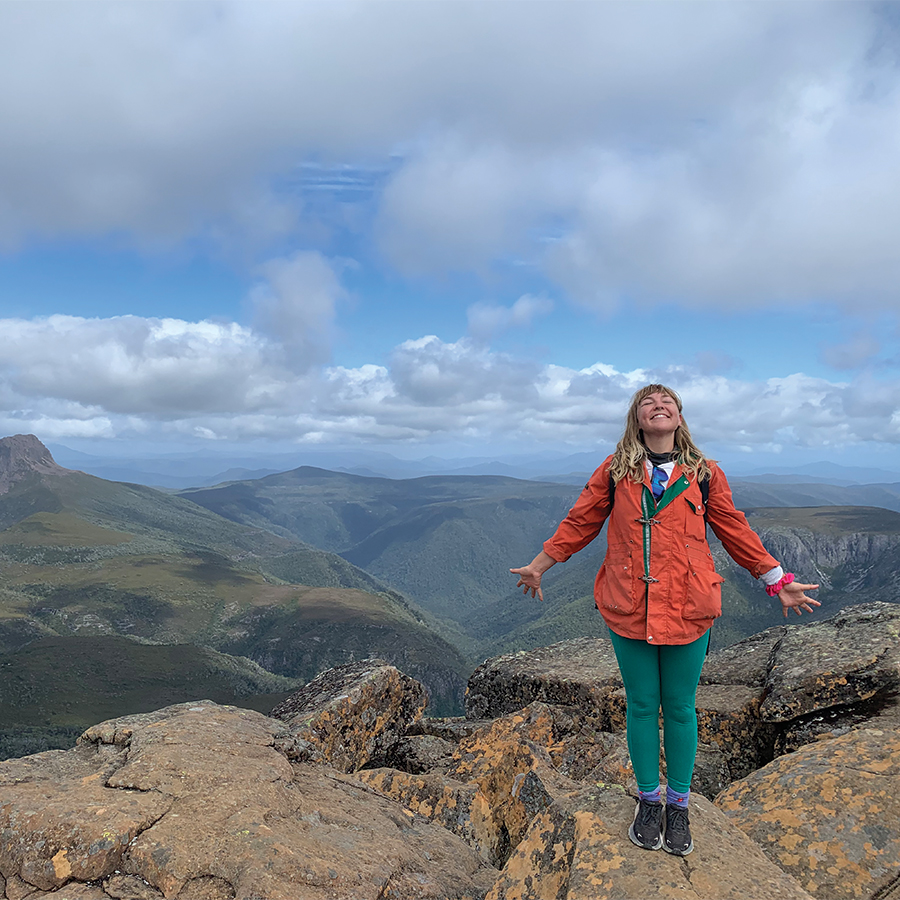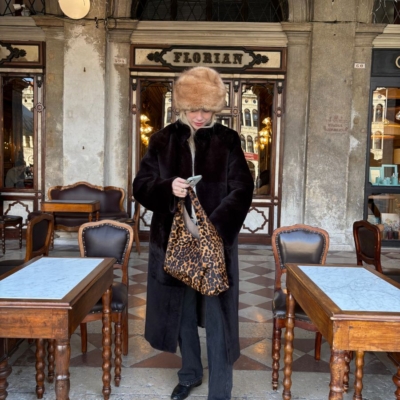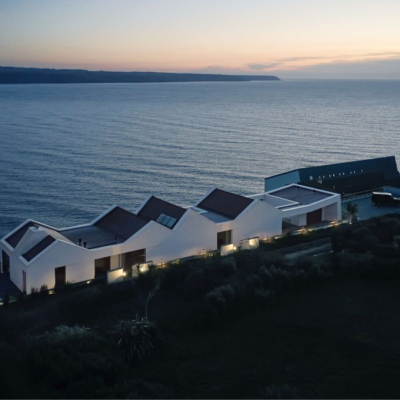Holly Hughes reflects on the lessons learned in five years …
I’ve been taking stock. That is the great thing about December. Beyond the sparkly social engagements and dash around town for Christmas presents, there is the invitation for self-reflection as another year comes to a close. With the advent of a new year comes the promise of a fresh start, a clean page – change. This will be my last A Drop in the Ocean column. In my first article, I set out a kind of mission statement. “This column is not about trying to do everything – my attempts to do so usually end in the paralysis of inaction,” I wrote. “Instead of catastrophising over the mammoth or massive, this column will focus on the meaningful, mindful and immediate.”
That’s what we have been doing together for almost five years. Almost every aspect of our daily routine, from brushing our teeth to dealing with periods, has been interrogated as we’ve found ways to soften our footprint and lead a more considerate and, I truly believe, a more fulfilling life. We have looked at small issues, like the carbon footprint of our caffeine addiction, and larger problems, like banks investing our money in fossil fuels or the troubling ubiquity of environmental racism. Each column has been a drop in the ocean of climate action, a steady rivulet of ecological hope that dreams of a sea change. Meanwhile, a sea change has been happening within me.
The truth is, I’ve struggled with this column over the past couple of years. This is supposed to be a place where we come together in collective hope and optimism. However, it’s been a long time since I have felt hopeful or optimistic about the climate crisis. As we stare down the barrel of another year of government action that is either glacial or non-existent, as we witness flagrant corporate indifference and the insatiable greed of neo-liberal capitalism, I don’t feel hopeful about our planet’s future. Every science-backed climate report, every climate conference, every expert, says the same thing: the people who have the power to make a difference aren’t doing enough. They – and they alone – can stop catastrophe. And they won’t. The disaster that was COP29 last month is proof enough of this.
I no longer believe we need drops in an ocean; we need a tidal wave! We need a tsunami to wipe out the structures, systems, and cynicism that are careering us towards devastation. We need the extreme storms becoming our new normal to shake up our government, mobilise industry, and wash away the collective apathy we see everywhere, every day. It’s an uncomfortable truth; it’s an incontrovertible truth.
“Almost every aspect of our daily routine has been interrogated as we’ve found ways to soften our footprint.”
However, that does not mean I’m giving up; that does not mean we stop trying. Through this column, I’ve met changemakers from all over the world – individuals and communities who prove that ingenuous and effective climate solutions exist. And they work! They are a testament to the power we all possess within us to affect change. Every month, my passion and commitment to living a good and harmless life has been reinvigorated by the resilience and awesome dedication and creativity of the people interviewed in these pages. And so, while I want to be honest about the true scale of environmental devastation we are facing, this last drop in the ocean isn’t fatalistic or apathetic. It is still hopeful because people are still trying, and succeeding, in making this world a better place. Here is a brief – and by no means comprehensive – list of some of the greatest lessons I’ve learned writing this column. It has been my privilege and honour to have had my faith in humanity restored time and again with this column. To every person I’ve interviewed, every reader I’ve interacted with, you are the reason there is still hope. You are the reason to keep going – keep going!
KEEP FIGHTING THE GOOD FIGHT
1. You are more powerful than you think. Everything you do, every decision you make, is a vote for the kind of world you want to live in. In the same way that smiling is contagious, so too is behaviour. Setting precedents for yourself – walking to the shops instead of driving, eating a plant-based diet, enforcing a ‘no KeepCup, no coffee’ rule – is also setting a precedent for others. You are an influencer!
2. That doesn’t mean it’s easy. I think of Rutger Bregman’s Fourth Law of Social Change often: “If your ideals do not require sacri? ce, then they’re probably not very signi? cant.” In other words, if it isn’t hard, then you’re probably not doing enough. Sorry.
3. Without the ocean, there is no oxygen, no life. We have to look after her (follow Coastwatch and FairSeas to find out how).
4. There is no social justice without climate justice, and vice versa. Fighting for one should always mean fighting for another.
5. You can’t do everything. Find what you’re good at and enjoy doing and focus on that. Don’t beat yourself up!
6. Where you put your money matters. How, where, and what you buy has tangible consequences on the planet. Buy responsibly.
7. Sometimes the best climate action is actually inaction. NOT sending an email, NOT flying abroad, NOT buying a dress in Zara in a last-minute panic. Every time you don’t do something, you reduce your carbon footprint.
8. The five billion streams and downloads of Justin Bieber’s “Despacito” in 2017 consumed as much electricity as Chad, Guinea-Bissau, Somalia, Sierra Leone and the Central African Republic put together. Our screentime comes with a carbon price tag.
9. Our relationship to food needs to change. Food production is responsible for a third of global carbon emissions. From meat consumption to food waste, we need to remember that a moment on the lips has lifetime consequences for our global hips.
10. Manufacturers deliberately create products to break. We are being coerced into a disposability culture that is actively encouraging us to throw away broken items. Fight back. Seek out repair cafés. Mend stuff.
11. Giving the land back to nature through rewilding, protected marine areas, and slow farming is crucial. However, it is not a hands-off approach. We have decimated ecosystems to such an extent that they cannot regrow without our help. We need to actively monitor and manage nature to help it regenerate.
12. Finally, there is nothing so potent, so transformative, as an Irish community. Our ability to come together makes our small nation capable of gargantuan feats. From rural communities building renewable energy cooperatives to urban soil projects that unite businesses and individuals in climate solutions, the answer, the hope for true and positive climate action lies in our community. @holly_hughes_words










